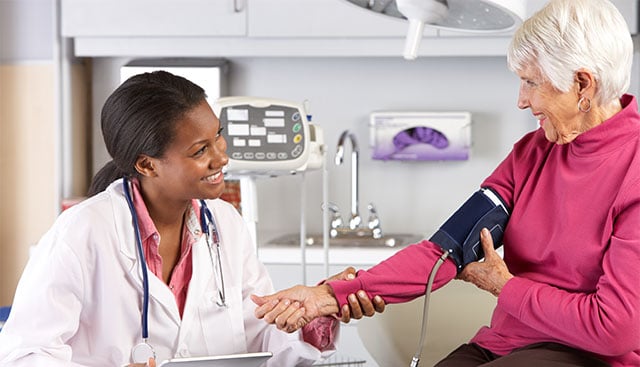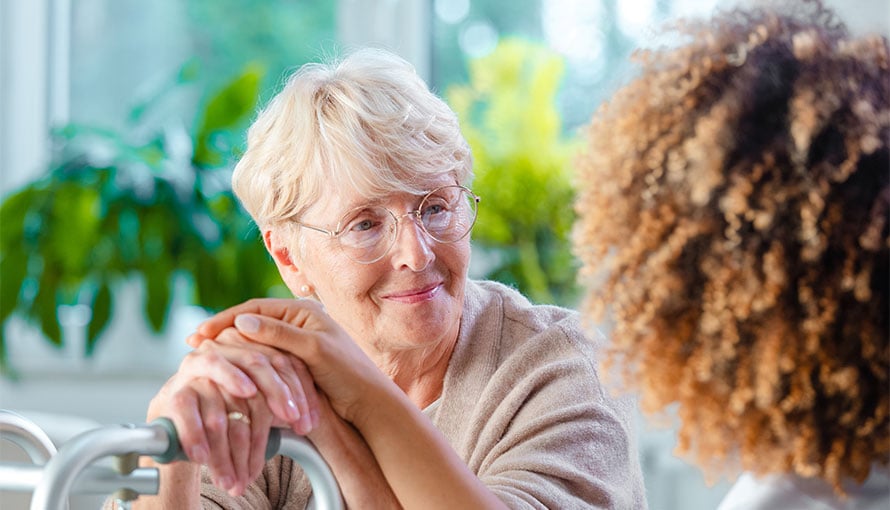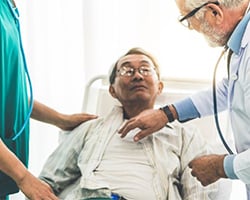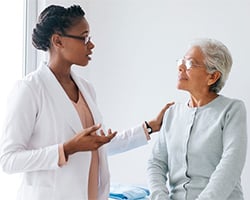
What Are the Most Common Cancers in the Elderly?
Cancer doesn’t discriminate - it affects people of all ages. However, the risk is known to increase with age. According to recent studies, more than two-thirds of all newly diagnosed cancers affect adults age 60 and older, with 66 being the median age at the time of diagnosis. As the population of elderly adults continues to grow, experts believe that the number of new cancer cases will grow as well.
Cancer incidence at older ages
Some of the most frequently diagnosed malignancies in older adults are:
Bladder cancer
More than 70% of all bladder cancer cases affect men between ages 50 and 80. The warning signs include frequent urination, burning sensations during urination, bloody urine and a distended bladder.
Lung cancer
More than 80% of all lung cancer cases affect adults age 60 or older. The warning signs include persistent coughing, chest pain, coughing up blood, difficulty breathing and chronic respiratory infections.
Pancreatic cancer
Pancreatic cancer is usually diagnosed in an advanced stage, and most cases affect adults age 65 or older. Some early warning signs include sudden-onset diabetes, jaundice, itchy hands and feet, loss of appetite, loss of taste or smell, pale or tarry stools and unexplained weight loss.
Breast cancer
The incidence of breast cancer among women age 65 and older is 1.7 times higher than the incidence among women between 45 and 64, and 10 times higher than the incidence among women younger than 45. Some early warning signs include a lump in a breast or armpit, breast swelling, changes in breast skin and changes in a nipple, such as inversion or discharge.
Prostate cancer
More than 50% of all prostate cancer cases affect men age 75 or older. Although early warning signs are rare, some men experience symptoms prior to being diagnosed, such as frequent urination, difficulty starting or holding back urine, burning sensations during urination, a weak urine stream and bloody urine or semen.

The relationship between age and cancer risk
Over time, an individual may continually be exposed to the effects of harmful environmental factors, such as ultraviolet (UV) light and chemical toxins, as well as harmful lifestyle factors, such as smoking, carrying excess body weight and consuming an unhealthy diet. These cumulative exposures can trigger the cellular DNA mutations that lead to the development of cancer.
What’s more, the immune system of a relatively young and healthy person may be strong enough to detect, target and destroy abnormal cells before they progress into cancer. However, the immune system naturally weakens and loses some of its cancer-fighting ability with age.
The impact of age on cancer treatment
There are some challenges associated with treating cancer in the elderly that may not be present when treating younger patients. For instance, older adults are more likely to have a co-existing health issue, such as high blood pressure or diabetes. Another concern is that older adults often do not have the same level of independence as their younger counterparts due to limited mobility or an inability to care for themselves. Furthermore, an individual’s support system may dwindle over the years, which can lead to feelings of loneliness and isolation—and perhaps a heightened sense of mortality if he or she was close to others who battled and succumbed to cancer. All of these factors can complicate cancer treatment.
To better address the unique needs, goals and health concerns of elderly cancer patients, Moffitt Cancer Center established a Senior Adult Oncology Program, which was the first of its kind in the nation. At Moffitt, we believe that a patient’s functional age—which encompasses factors such as physical fitness, mobility, cognitive ability and overall health—is more important than chronological age when determining the optimal course of treatment.
Virtual second opinion option
If you have been diagnosed with cancer, have transportation concerns, and would like to get a second opinion from one of our expert senior adult oncologists, you can request a virtual senior adult visit. No referral is necessary.
If you would like to learn more, you can request an appointment with a specialist in Moffitt’s Senior Adult Oncology Program by calling 1-888-663-3488 or completing our new patient registration form.
Related Stories:
 The findings of a study provide support for expanding the use of immunotherapy treatment in the senior adult patient population.
The findings of a study provide support for expanding the use of immunotherapy treatment in the senior adult patient population.
Read More
 Researchers have found that any patient healthy enough for CAR T therapy, regardless of age, should receive it as treatment.
Researchers have found that any patient healthy enough for CAR T therapy, regardless of age, should receive it as treatment.
Read More
